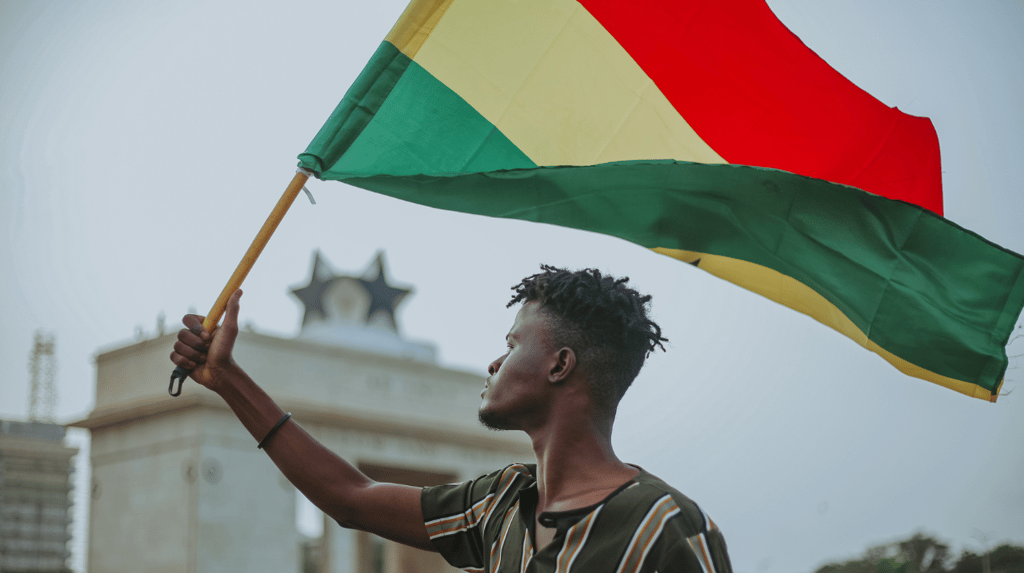Ghanaians' Perspectives on the Returning of the Diaspora
Since the approval of the "Year of Return" campaign by President Nana Akufo-Addo in 2019, Ghana has seen an increase in the repatriation of the diaspora. This initiative aimed to encourage people of African descent to return to their ancestral homeland and reconnect with their roots.
CULTURE
Leslie E. Jones
4/25/20245 min read


Ghanaians' Views on the Returning of the Diaspora since the "Year of Return" Campaign
Since the approval of the "Year of Return" campaign by President Nana Akufo-Addo, Ghana has seen an increase in the repatriation of the diaspora. This initiative aimed to encourage people of African descent to return to their ancestral homeland and reconnect with their roots.
The campaign has garnered significant attention and interest worldwide, and Ghanaians have varying views on the repatriation of the diaspora.
The Pride and Excitement of Ghanaians
Ghanaians, as a whole, have expressed pride and excitement about the repatriation of the diaspora. The "Year of Return" campaign has brought global attention to Ghana and has positioned the country as a destination for people seeking to reconnect with their African heritage.
Ghanaians view the return of the diaspora as a validation of their culture, history, and contributions to the world. Many Ghanaians also see the repatriation of the diaspora as an opportunity for economic growth and development.
The influx of people from the diaspora has led to increased tourism, investment, and job creation in various sectors. Ghanaians recognize the potential benefits that come with the repatriation of the diaspora and are eager to welcome them back home.
The Importance of Cultural Exchange and Knowledge Sharing
Ghanaians value the cultural exchange and knowledge sharing that occurs through the repatriation of the diaspora. The returnees bring with them diverse experiences, skills, and perspectives that can contribute to the growth and development of Ghana.
Ghanaians appreciate the opportunity to learn from the diaspora and to strengthen their own cultural identity through these interactions. Furthermore, Ghanaians understand the importance of preserving and promoting their cultural heritage.
The repatriation of the diaspora provides a platform for Ghanaians to showcase their traditions, language, music, art, and cuisine to a global audience. This exchange of cultural knowledge fosters a sense of pride and unity among Ghanaians and the diaspora.
Challenges and Concerns
While there is overall enthusiasm for the repatriation of the diaspora, Ghanaians also recognize the challenges and concerns that come with it. One of the main concerns is the potential strain on resources and infrastructure.
The sudden increase in population can put pressure on housing, healthcare, transportation, and other essential services. Ghanaians hope that the government will adequately address these challenges to ensure a smooth transition for both the diaspora and the local population.
Another concern is the potential for cultural clashes and misunderstandings. The diaspora may have different expectations and perceptions of Ghana, which can lead to friction with the local population. Ghanaians emphasize the importance of open dialogue, cultural sensitivity, and mutual respect to overcome these challenges and foster a harmonious relationship between the diaspora and the local community.
The Role of Government and Community Support
Ghanaians believe that the success of the repatriation of the diaspora relies on the support and collaboration of both the government and the local community. The government plays a crucial role in creating an enabling environment for the diaspora to settle and thrive in Ghana.
This includes providing necessary infrastructure, implementing policies that facilitate investment and entrepreneurship, and addressing any legal or bureaucratic hurdles that may arise. At the same time, community support is vital in ensuring the smooth integration of the diaspora into Ghanaian society.
Ghanaians are encouraged to embrace and welcome the returnees, offering them guidance, support, and opportunities for social and professional networking. By fostering a sense of belonging and inclusion, Ghanaians can help the diaspora feel at home in their ancestral land.
In Conclusion
The repatriation of the diaspora since the approval of the "Year of Return" campaign has been met with pride, excitement, and some concerns by Ghanaians. Overall, Ghanaians view the return of the diaspora as an opportunity for cultural exchange, economic growth, and the preservation of their heritage.
While challenges exist, Ghanaians emphasize the importance of government support and community integration to ensure a successful repatriation process. The "Year of Return" campaign has undoubtedly brought Ghanaians and the diaspora closer together, fostering a sense of unity, pride, and shared identity.
My Personal Experience
Now that the politically correct information is out the way. Let me be honest. I have been to Ghana 5 times and within the 5 times I lived in Accra and within an indigenous community. I am grateful for the genuine people who have seen me as their own and helped me to acclimate.
It would be a disservice to you to not be fully transparent. We are foreigners in a foreign land. We are seen as foreigners with money. Even to the point of being rich. For most of us returning, we are not rich but that is not how Ghanaians see us. We are a "come up" opportunity on a micro and macro level.
I know it is hard for some of us to receive this message because we have been sold this idea of "Returning to Africa" as a type of salvation and rest, especially through pan-Africanism and some religions. Although I strongly encourage touring Ghana for a vacation.
Repatriating or doing business in Ghana is a different monster, especially for the foreign single woman. In spite of our issues in our birth countries. We have rights and freedoms we must not take for granted. Be emotionally aware that traveling to Ghana is going back in time.
The way they handle customer service, business transactions, and non-citizens is below the standard we are use to. Of course there are exceptions to the rule but for the most part. You must accept..."IT IS NOT WANT HAS BEEN ADVERTISED. YOU ARE MONEY TO THEM. NOTHING ELSE." The sooner you accept that. The quicker you will be able to navigate your new exciting adventure in Ghana.
There is opportunity in Ghana, but to make it to the other side is a gamble. One must know the right people or have the right "money" to get things done. How much money and time are you willing to lose until you find the right team? Only you can answer that.
My connections are in tourism and the land buying sector. If you need assistance in those areas. I can help. Please do your due diligence in the sector you choose. Let's end this blog on a high frequency! Visiting Ghana as a tourist was life impacting.
Some of the best fruits and produce I have consumed. The natural habitats are breath-taking and transcending. The genuine people that actually see you as a brother or sister are heart-warming and you will become an extended family member.
Go with an open-mind and heart but guard your heart. Our emotions sometimes clouds our reasoning. With the right excitement and correct level of emotional intelligence. You will have a life changing experience.
The Due Diligence Process: How To Buy Land in Ghana E-Book
Join Us!
Are you looking for a traveling community? Join our "Small But Mighty" Crew Facebook Group! We're all about sharing, helping, and learning together through travel which was birthed from my YouTube Channel. This is a safe space to share your travels and stay updated on my next adventures. Let's make some memories together!


